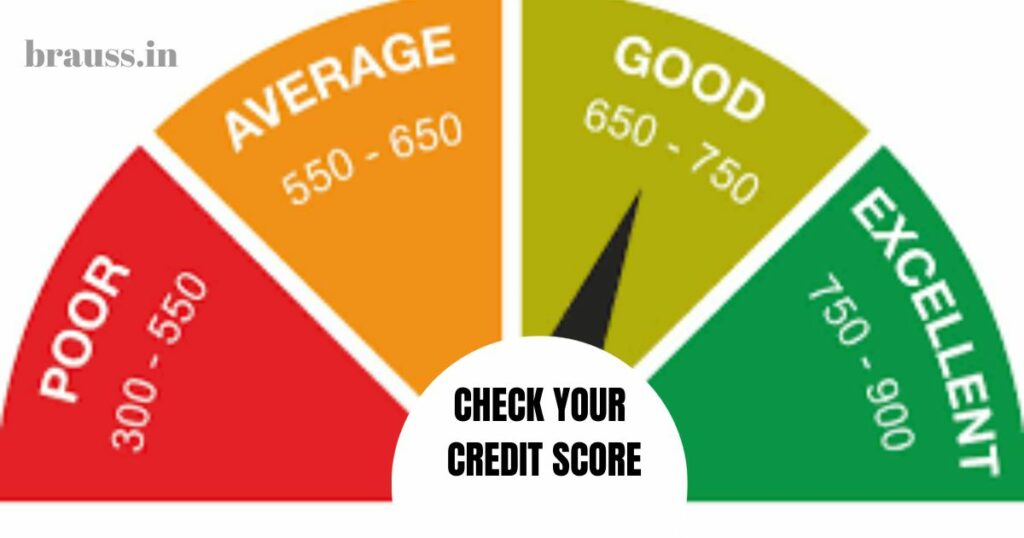A credit score is a three-digit number that reflects your creditworthiness, which ranges from 300 to 850. It provides a summary of your credit history and financial reliability. In India, your Credit Information Bureau (India) Limited (CIBIL) score is calculated by Experian Credit Information Company of India Private Limited and can be accessed online. In this article we have provided you the information to check your credit score easily.
When you apply for a loan, your credit score serves as an indicator of your financial responsibility. Lenders use the CIBIL report, which includes your credit score, to evaluate your credit history. This report summarizes your credit accounts, the amount of credit you’ve used, your outstanding debts, the number of hard credit inquiries made on your profile, the length of your credit history, and whether you’ve been making timely payments on bills and loan installments.
How to check your credit score?

To access your credit score online , you will need to provide some personal information including your first and last name, date of birth, gender, email address, PAN number, mobile number, address, state, city, and pin code. To check credit score simply click on the given button and fill all the details. Make sure all these details are accurate, then click the ‘Submit’ button. Once you do this, you can obtain your credit score and credit report online for free.
What affects your credit score?
The points given below mainly affects your credit score. Read these points to know how can you improve your credit score and how to save it from going below.
- Missing credit card payments repeatedly can harm your credit score. When you fail to repay credit card debt on time, it reflects negatively on your CIBIL report.
- Having an imbalance between unsecured and secured loans is also detrimental to your credit score. Your credit report should ideally show a mix of both.
- Applying for multiple loans may make you appear as a high-risk borrower, negatively impacting your credit score. It’s important to manage your loan applications wisely.
- Owning too many credit cards can increase your credit utilization ratio (CUR), which is the amount you owe compared to your credit limit. A high CUR can lower your credit score.
- Having a high credit limit can lead to a higher debt burden, which is unfavorable for your credit score.
- Not using your credit card at all can also have a negative impact on your credit score. It’s important to use credit cards responsibly, staying under your credit limit and making timely payments to maintain a positive credit score and CIBIL report.
How can I improve my credit score?
If you follow the things that are given below you can increase your credit score and that will help you to apply for a new loan easily and help you in many ways.
- Pay Bills On Time: Always pay your bills when they’re due.
- Lower Debt: Reduce what you owe, especially on credit cards.
- Mix Credit Types: Have a mix of different credit accounts.
- Limit New Credit: Avoid applying for too many new loans or cards.
- Check Your Report: Review your credit report for errors.
- Keep Old Accounts: Don’t close old accounts; they help your history.
- Use Credit Cards Wisely: Keep balances low and don’t max out your cards.
- Avoid Closing Accounts: Closing accounts can hurt your score.
- Seek Help If Needed: Get advice if your credit situation is tough.
What should I do if I do not have a credit score?
How credit score is calculated?
Credit scoring models typically assess the timing of your payments, the amount of debt owed, and the frequency of missed payments. Your credit history provides insights into the proportion of delinquent credit accounts in relation to your total accounts. Essentially, these models gauge your financial responsibility by examining your payment history, debt levels, and delinquency patterns.
FREQUENTLY ASKED QUESTIONS
What is credit score ?
A credit score is a 3-digit number, ranging from 300 to 900, that reflects your creditworthiness, calculated by Experian in India and available online.
What is 1 credit score?
A CIBIL score of 1 means there is absolutely no information available about the borrower’s credit history. It is often referred to as “NH” or “no history” because there is no credit-related data to report.
What is a good credit score?
| CIBIL Range | Rating |
| 300-499 | Poor |
| 500-649 | Average |
| 650-749 | Good |
| 750-900 | Excellent |
How can I improve my credit score?
- Pay bills on time.
- Lower debt, especially on credit cards.
- Diversify credit types.
- Limit new credit applications.
- Check your report for errors.
- Keep old accounts open.
- Use credit cards responsibly.
- Avoid closing accounts.
- Seek help if needed.
